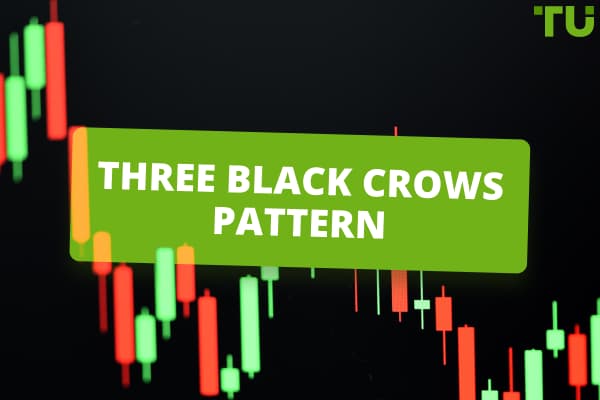Key Skills of a Professional Trader
Key professional qualities of a trader:
Discipline: for consistent adherence to trading strategies and rules.
Constant leaning: adapts to evolving markets, ensuring a continuous update of skills and strategies.
Strict planning: minimizes impulsive actions, establishes risk parameters, and enhances overall trading efficiency.
Risk management: safeguards capital, ensuring a balanced approach to risk and reward.
Determination: sustains motivation during market challenges, driving continuous effort towards trading goals.
Psychological stability: maintains composure under market pressure, preventing emotional decision-making for long-term success.
A professional trader is someone who trades on financial markets as their primary profession. Professional traders typically work for investment banks, hedge funds, or other financial institutions. They may also work independently as individual traders.
Professional traders need to possess a broad range of skills and knowledge, including:
Financial literacy: an understanding of the fundamentals of economics, finance, and the market.
Analytical skills: the ability to analyze data and identify patterns.
Decision-making skills: the ability to make sound decisions in the face of uncertainty.
Stress tolerance: the ability to remain calm and make effective decisions under stress.
Professional traders typically receive training at universities or through trader training programs. They also need to have experience in the financial markets.
The financial markets are a complex and ever-changing environment. To be successful in trading, it is essential to have a strong set of skills and knowledge. In this article, we will discuss the key skills that are essential for any professional trader.
Technical analysis skills
Technical analysis is the study of historical market data to identify patterns and trends that can be used to predict future price movements. Technical analysts use a variety of tools and indicators to analyze market data, including charts, moving averages, and oscillators.
Some of the most common technical analysis tools and indicators include:
Charts are visual representations of price movements. Charts can be used to identify patterns and trends in price movements.
Moving averages are indicators that track average prices over a specified period of time. Moving averages can be used to identify trends and support/resistance.
Oscillators are indicators that measure the speed and strength of price movements. Oscillators can be used to identify overbought/oversold markets and signals for trend reversals.
Technical analysis can be an effective tool for predicting future prices, but it is important to understand its limitations. Technical analysis is not an exact science, and its results do not always match actual price movements.
Here are some tips for using technical analysis:
Use multiple tools and indicators. This will help you get a more complete view of the market.
Don't rely on technical analysis alone. Always consider fundamental factors that can affect the price of an asset.
Test your strategies on historical data. This will help you understand how effective they are in real-world conditions.
Technical analysis skills are essential for any trader who wants to make informed trading decisions. By understanding the historical patterns of the market, technical analysts can identify potential opportunities and avoid potential risks.
Fundamental analysis skills
Fundamental analysis is the study of economic and financial factors that can affect the price of an asset. Fundamental analysts consider factors such as economic growth, interest rates, company earnings, and political events when making trading decisions.
Fundamental analysis involves the study of the following factors:
Economic growth - economic growth can lead to increased demand for goods and services, which in turn can lead to higher prices for those goods and services.
Yield - high yield on an asset can make it more attractive to investors, which in turn can lead to higher asset prices.
Inflation - inflation can lead to the devaluation of money, which in turn can lead to higher asset prices.
Political events - political events, such as elections or changes in taxes, can affect the price of an asset.
Fundamental analysis skills are important for traders who want to understand the underlying causes of market movements. By understanding the fundamental factors that affect the price of an asset, fundamental analysts can make more informed trading decisions.
Risk management skills
Risk management is the process of identifying and mitigating the risks associated with trading. Risk management skills are essential for any trader who wants to protect their capital and avoid losses.
Risk management skills include the following:
Setting stop-losses. Using stop-losses is one of the most important principles of risk management. Stop-losses help traders protect their capital and avoid large losses.
Using position sizing. Proper position sizing is an important factor in risk management. Too large of a position size can lead to significant losses in the event of unfavorable market movement.
Diversifying your portfolio. Invest in different asset classes, such as stocks, bonds, real estate, and commodities. Invest in different companies and industries. Invest in global markets.
Being aware of your risk tolerance. Understanding your risk tolerance is an important aspect of risk management. If you do not know how much risk you are willing to accept, you may make decisions that are not in line with your goals.
By developing strong risk management skills, traders can reduce their risk of losing money and increase their chances of success.
Psychological skills
Trading can be a very stressful activity. It is important for traders to be able to control their emotions and make rational trading decisions even under pressure.
Psychological skills that are important for traders include:
Emotional control. motional control is the ability to manage your emotions so that they do not interfere with making rational decisions. For traders, emotional control is a vital skill, as markets can be very emotional places.
Discipline. Discipline is the ability to follow plans and goals, even when it is difficult. Discipline is necessary for traders to stay focused on their goals and not give in to emotions.
Patience. Patience is the ability to wait for the desired outcome without losing hope. Patience is necessary for traders to not give in to emotions and make rash decisions.
Resilience. Resilience is the ability to cope with stress and setbacks. Resilience is necessary for traders to not give up when the market goes against them.
By developing strong psychological skills, traders can avoid making emotional trading decisions that can lead to losses.
Other skills
In addition to the skills mentioned above, there are a number of other skills that can be helpful for traders. These include:
Communication skills. Communication skills are the ability to effectively exchange information with others. They are essential for traders, as they need to be able to communicate with clients, colleagues, and other market participants.
Problem-solving skills. Problem-solving skills are the ability to identify and resolve problems. They are essential for traders, as they need to be able to identify and address risks and opportunities in the market.
Decision-making skills. Quick decision-making is paramount. Traders often face rapidly changing market conditions, requiring them to make split-second decisions on buying, selling, or holding positions.
Financial Knowledge. A deep understanding of financial markets, instruments, and economic indicators is vital. Professional traders continuously update their knowledge to stay ahead in dynamic markets.
Technical Proficiency. Proficiency in trading platforms, algorithms, and financial software is a must. Traders should leverage technology for efficient execution and analysis.
These skills can help traders to collaborate with others, solve problems, make sound decisions, and manage their time effectively.
Best Forex brokers


Tips for beginner traders
Here are some additional tips for developing the key skills of a professional trader:
Get the right education and training. There are a number of resources available to help traders learn the skills they need to be successful. These include books, online courses, and trading academies.
Practice regularly. The best way to develop trading skills is to practice regularly. This will help you to develop your intuition and improve your decision-making skills.
Find a mentor. A mentor can provide guidance and support as you develop your trading skills.
Join a trading community. Trading communities can provide a great way to learn from other traders and share ideas.
By following these tips, you can increase your chances of becoming a successful professional trader. You may also be interested in the article: How Long Does It Take To Learn To Be A Trader?
Conclusion
To be successful in trading, it is essential to have a strong set of skills and knowledge. By developing the skills discussed in this article, traders can increase their chances of success in the financial markets.
FAQs
What are important skills for a trader?
Key skills for a trader include a deep understanding of financial markets, proficiency in technical and fundamental analysis, risk management abilities, quick decision-making skills, emotional discipline, and adaptability to changing market conditions.
What makes you a professional trader?
A professional trader is characterized by their ability to generate consistent profits from financial markets, often making trading their primary source of income. They possess a comprehensive skill set, experience, and a disciplined approach to trading.
What is the key for successful trader?
The key to a successful trader lies in a combination of effective risk management, continuous learning and adaptation, psychological resilience to handle both wins and losses, and the ability to remain disciplined in executing their trading plan.
What are examples of trade skills?
Trade skills encompass technical analysis using charts and indicators, fundamental analysis involving economic and company data, risk management to protect capital, pattern recognition, and the ability to develop and stick to a well-defined trading strategy.
Glossary for novice traders
-
1
Index
Index in trading is the measure of the performance of a group of stocks, which can include the assets and securities in it.
-
2
Yield
Yield refers to the earnings or income derived from an investment. It mirrors the returns generated by owning assets such as stocks, bonds, or other financial instruments.
-
3
Options trading
Options trading is a financial derivative strategy that involves the buying and selling of options contracts, which give traders the right (but not the obligation) to buy or sell an underlying asset at a specified price, known as the strike price, before or on a predetermined expiration date. There are two main types of options: call options, which allow the holder to buy the underlying asset, and put options, which allow the holder to sell the underlying asset.
-
4
Time Management
Time management is the coordination of tasks and activities to maximize the effectiveness of an individual's efforts.
-
5
Leverage
Forex leverage is a tool enabling traders to control larger positions with a relatively small amount of capital, amplifying potential profits and losses based on the chosen leverage ratio.
Team that worked on the article
Alex Smith is a professional day trader for a proprietary trading firm within the foreign exchange (forex) and crypto markets. His area of expertise is day trading and swing trading within the 15min-4hr time frames for both the London and NY open.
Dr. BJ Johnson is a PhD in English Language and an editor with over 15 years of experience. He earned his degree in English Language in the U.S and the UK. In 2020, Dr. Johnson joined the Traders Union team. Since then, he has created over 100 exclusive articles and edited over 300 articles of other authors.
Mirjan Hipolito is a journalist and news editor at Traders Union. She is an expert crypto writer with five years of experience in the financial markets. Her specialties are daily market news, price predictions, and Initial Coin Offerings (ICO).











